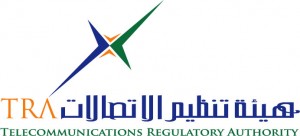Committed to providing the best level of services in the United Arab Emirates ICT sector, and in line with its objective of seeking the latest global developments in the fields of information and telecommunications, the Telecommunications Regulatory Authority (TRA) on 24th of July 2011 launched its training programme on the Internet Protocol version 6 (IPv6).
The training programme is an initiative of the World Summit on the Information Society (WSIS) National Committee in the UAE which is chaired by the TRA. It is being hosted by the TRA in cooperation with RIPE Network Coordination Centre (NCC), a leading registry for the allocations of internet resources, in the Palace Hotel, Dubai, from 24-28 July 2011.
Speaking at the event, H.E. Mohamed Nasser Al Ghanim, TRA Director General said: “Following the wise direction of the UAE Government and due to the TRA’s mandate of developing and organizing the ICT sector in the country, the TRA in cooperation with RIPE NCC launched this event with the aim of spreading awareness among government and private sector bodies about the necessity to consider IPv6 in their networks and application services.”
“We sought through this event to focus on building the capacities of entities to prepare them for the future deployment of the IPv6 which is likely to take place in the coming two years as the IPv4 is exhausted from the Internet Assigned Numbers Authority (IANA). The TRA will be leading and building capacities in IPv6 for the country and it will ensure a seamless transition to the new IPv6 in order to keep the UAE in line with the latest developments in the ICT sector,” Al Ghanim added.
The programme focused on building capacities in the government bodies targeting 15 government entities with 30 participants. The training was on the importance of adopting the IPv6 to cope with international standards and innovation. This will contribute in ensuring future opportunities with innovation and best technologies in hand.
The training during this programme, which represents a regional race, included lectures delivered by experts in the ICT sector, in which they shared their knowledge and information on the IPVS, along with practical hands-on sessions that allowed the participants to interact with the advantages that are coming in tandem with the adoption of the IPv6.
The participants expressed their appreciation to the TRA for organizing this event. They noted that such events contribute in creating the sense of how important this transition and preparing for it are, in addition to giving their entities the sufficient time to take all necessary actions and make all required preparations, because taking such a step cannot be performed instantly without preparations.
The TRA represented by the .ae Domain Administration Department (.aeDA), participated in the “TEST Flight” Day on 8 June 2011 by joining other major organizations around the world who displayed their content over the IPv6 for the 24-hour “test flight.” The goal of the Test Flight Day was to motivate organizations across the industry; internet service providers, hardware manufacturers, operating system vendors, and web masters to prepare their services for IPv6 to ensure a successful transition as the number of IPv4 addresses are quickly diminishing.

The training programme is an initiative of the World Summit on the Information Society (WSIS) National Committee in the UAE which is chaired by the TRA. It is being hosted by the TRA in cooperation with RIPE Network Coordination Centre (NCC), a leading registry for the allocations of internet resources, in the Palace Hotel, Dubai, from 24-28 July 2011.
Speaking at the event, H.E. Mohamed Nasser Al Ghanim, TRA Director General said: “Following the wise direction of the UAE Government and due to the TRA’s mandate of developing and organizing the ICT sector in the country, the TRA in cooperation with RIPE NCC launched this event with the aim of spreading awareness among government and private sector bodies about the necessity to consider IPv6 in their networks and application services.”
“We sought through this event to focus on building the capacities of entities to prepare them for the future deployment of the IPv6 which is likely to take place in the coming two years as the IPv4 is exhausted from the Internet Assigned Numbers Authority (IANA). The TRA will be leading and building capacities in IPv6 for the country and it will ensure a seamless transition to the new IPv6 in order to keep the UAE in line with the latest developments in the ICT sector,” Al Ghanim added.
The programme focused on building capacities in the government bodies targeting 15 government entities with 30 participants. The training was on the importance of adopting the IPv6 to cope with international standards and innovation. This will contribute in ensuring future opportunities with innovation and best technologies in hand.
The training during this programme, which represents a regional race, included lectures delivered by experts in the ICT sector, in which they shared their knowledge and information on the IPVS, along with practical hands-on sessions that allowed the participants to interact with the advantages that are coming in tandem with the adoption of the IPv6.
The participants expressed their appreciation to the TRA for organizing this event. They noted that such events contribute in creating the sense of how important this transition and preparing for it are, in addition to giving their entities the sufficient time to take all necessary actions and make all required preparations, because taking such a step cannot be performed instantly without preparations.
The TRA represented by the .ae Domain Administration Department (.aeDA), participated in the “TEST Flight” Day on 8 June 2011 by joining other major organizations around the world who displayed their content over the IPv6 for the 24-hour “test flight.” The goal of the Test Flight Day was to motivate organizations across the industry; internet service providers, hardware manufacturers, operating system vendors, and web masters to prepare their services for IPv6 to ensure a successful transition as the number of IPv4 addresses are quickly diminishing.











